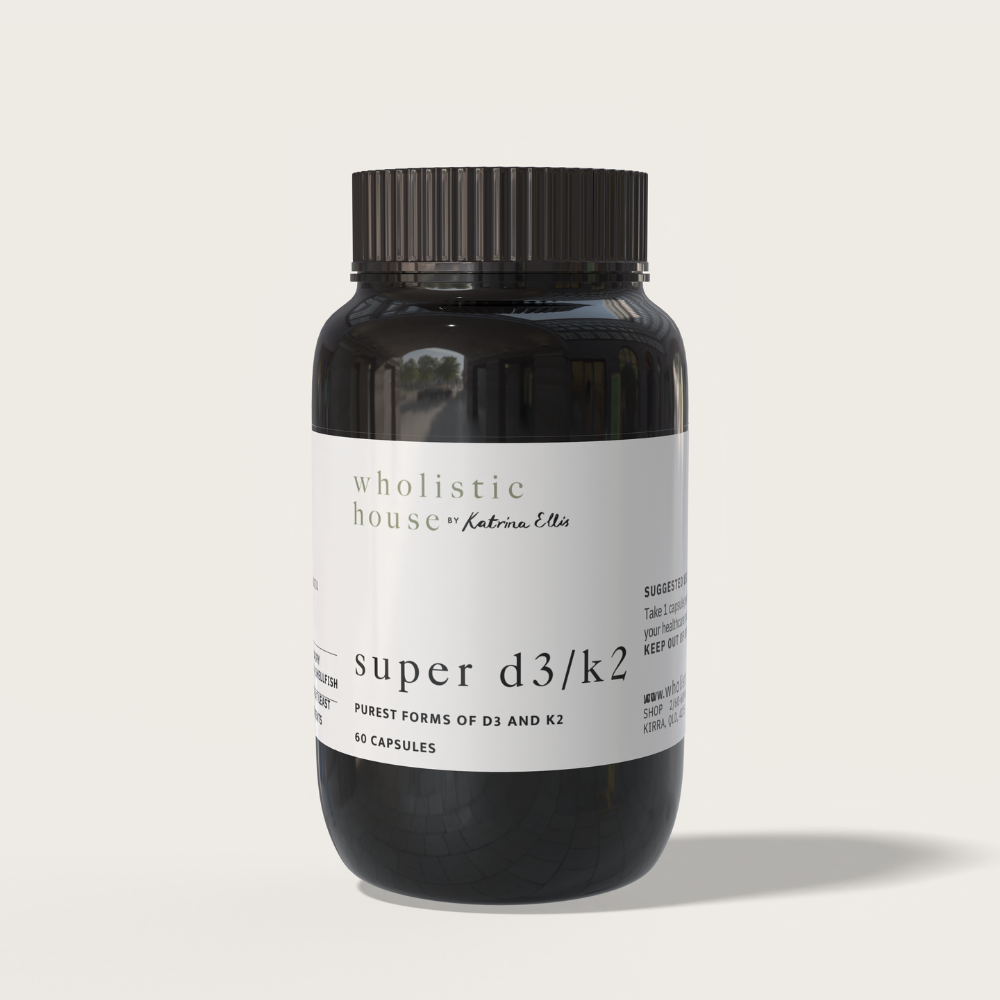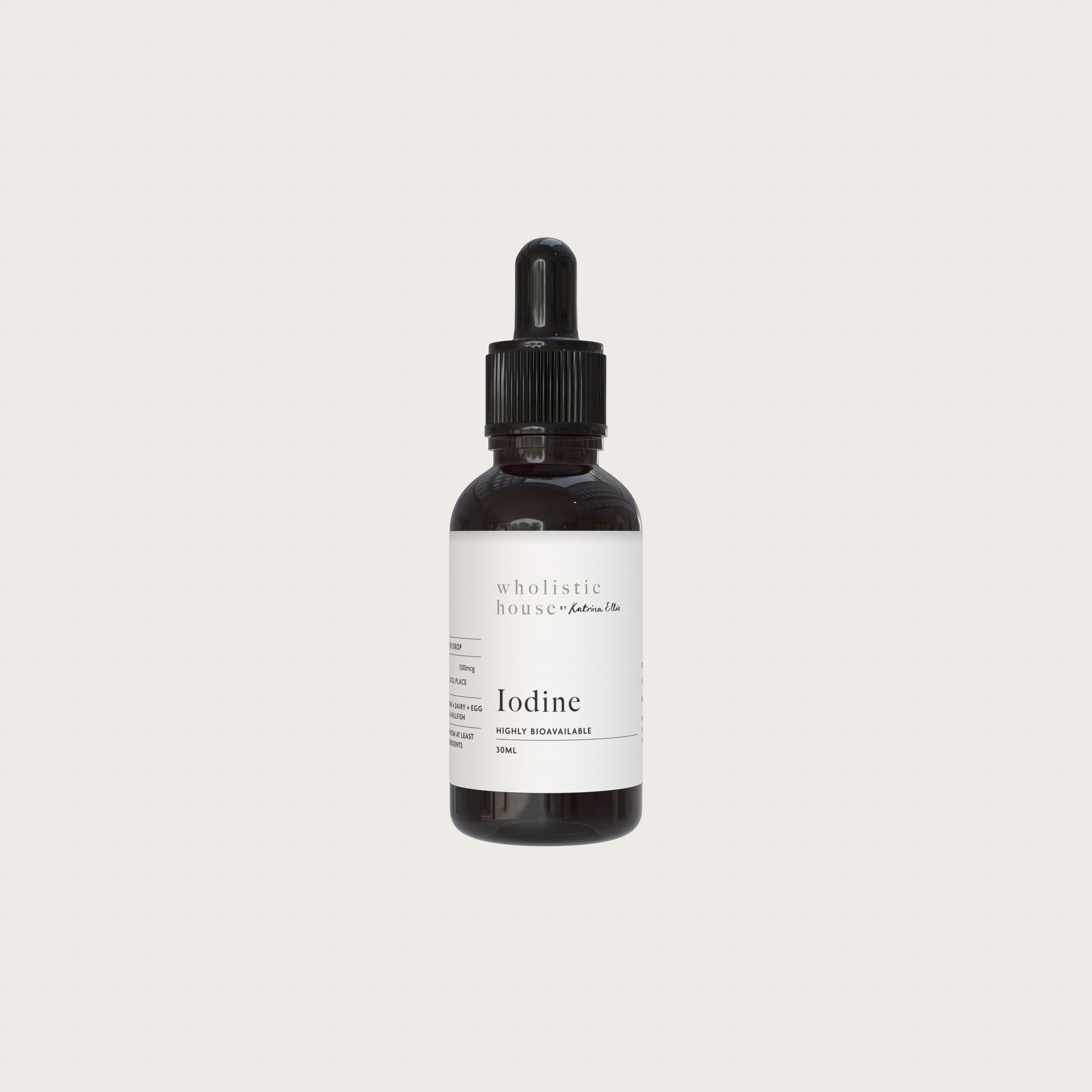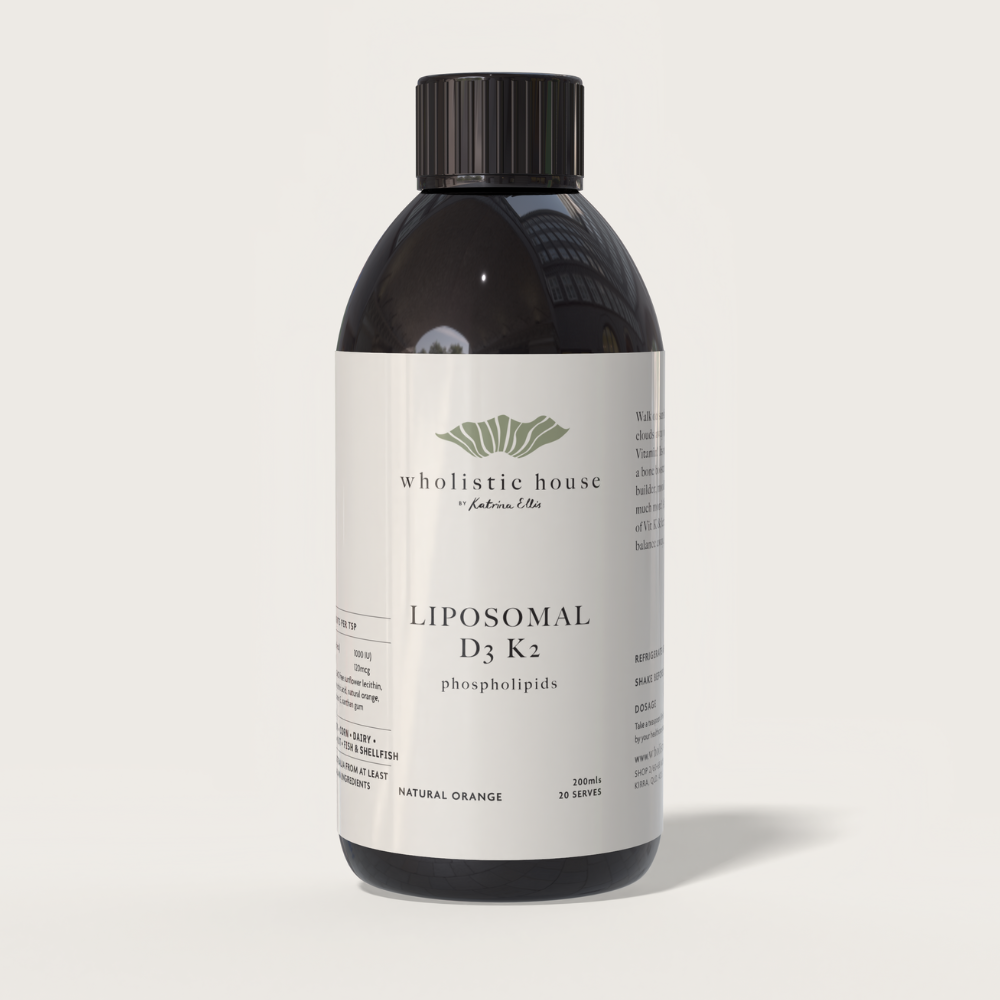
Stop the THYROID Madness
The rise in thyroid problems in the Western world is reaching epidemic proportions. It is estimated that at least 1 in 33 Australians are suffering from hypothyroidism and up to 80% of people may have an undiagnosed thyroid imbalance. This isn’t surprising as the thyroid is highly affected by chemicals, toxins, heavy metals and endocrine disruptors and with so many found in the environment today it is no wonder this little gland is suffering.
The thyroid is a small butterfly shaped gland that sits in the front of the neck. It is one of the most important endocrine glands in the human body as it regulates the production of thyroid hormones which impact weight, energy, temperature, skin, hair and nail growth, metabolism, heartbeat and even breathing. Being a major part of the endocrine system (hypothalamus, pituitary, parathyroid, thyroid, pancreas, adrenals and ovaries or testicles) it plays a crucial role in regulating hormonal balance and when it is out of whack, the symptoms it creates are diverse and varied.

Blood testing for TSH is unreliable, as only 18% of thyroid hormones are carried in the blood. It is therefore not an accurate tool to establish a correct baseline and many clinical studies have proven this. The moment a doctor sees a drop or rise in TSH in the blood, medication is recommended instead of looking at why there has been a shift. There are more accurate ways to measure how the thyroid is functioning. At our health centre, we are lucky to have a thyroflex device that uses brachial reflexes to test cellular function and therefore thyroid balance. This test is 98% accurate and used internationally in the best treatment centres around the world.
To understand how the thyroid can become imbalanced, it is useful to know how these hormones are made in the human body. To put simply – the thyroid absorbs iodine or iodine from food. Iodine molecules then attach to the tyrosine and create the thyroid hormone precursors, T1 and T2. T1 and T2 then form the thyroid hormones T3 and T4, the main thyroid hormones that regulate all metabolic processes. If you do not make enough of these, many different symptoms will begin to develop. If you suspect a thyroid problem, try answering the questions below and if you score over 8 you definitely have an underactive thyroid that needs addressing:
0 – 1 – 2 – 3 (0 indicates never and 3 indicates always)
- Tiredness and Sluggishness, lethargy
- Dryer Hair or Skin
- Sleep more than usual
- Weaker Muscles
- Constant Feeling of Cold (fingers and hand) or (feet and toes)
- Frequent Muscle Cramps
- Poor Memory
- More depressed (mood change easily)
- Slower thinking
- Puffy eyes
- Difficulty with Maths
- Hoarser or Deeper Voice
- Constipation
- Coarse Hair/Hair Loss/Brittle Hair
- Muscle Pain
- Joint Pain
- Low sex drive
- Fluid retention
- Poor Stress Coping
- Slow speech
- Yellow bumps on eyelids
- Frequent Colds
- Painful menstruation/PMS/Cramps
- Heavy periods
- Breast pain/breast lumps
TOTAL SCORE =
The most common thyroid problem today is hypothyroidism which occurs when a low TSH causes poor production of T3 and T4. Hashimoto’s or thyroiditis is an autoimmune condition that results in antibodies being produced against the thyroid gland resulting in damage to this gland.
If thyroid problems are not addressed holistically, it can lead to more serious complications that may include:
- Diabetes
- Addisons or Grave’s disease
- Infertility, ovarian failure
- Pregnancy and birth complications
- High cholesterol
- Heart disease risk
- Brain and kidney problems
- Neurological damage
- Enlarged thyroid
- Multi-nodular disease
- Increased breast and prostate cancer risk
So what drives thyroid problems? Normally it takes a number of different drivers to create a thyroid issue. The most common of these are:
- Gut and bowel problems – dysbiosis, parasites, viruses etc
- Leaky gut
- Chronic long-term stress
- Multiple food intolerances like gluten and dairy
- Autoimmune conditions
- Mould exposure and sensitivity
- Chemical, heavy metal and toxin exposure
- Radiation exposure from computers, mobiles and EMF
- Underlying genetic drivers
- Nutritional deficiencies particularly of iodine, selenium, tyrosine and Vitamin D
- High exposure to endocrine disruptors like bromines, fluoride, halides and others…
IMPORTANT TESTS we RECOMMEND
It is important to locate the exact drivers that triggered your thyroid imbalance, so you can treat the cause of your problem, rather than only treating the symptoms. The tests I suggest for my patients include:
- THYROFLEX – this is done on site at our clinic – it uses arterial brachial reflex testing to find out the function of your thyroid and any drivers including adrenal problems, neurotransmitter production and metabolic rate. Only 18% of thyroid hormones are carried in the blood whereas this test is 98.5% accurate. To make an appointment for a thyroflex test and consult, visit www.wholistichouse.co or call 0755363113
- OLIGOSCAN – this works by cytophotometry – it tests for imbalances of minerals and heavy metals in tissues and gives instant results – it is 99% accurate (if you live interstate – we can do a hair HTMA test)
- COMPREHENSIVE THYROID PANEL – T3, T4, REVERSE T3, THYROID ANTIBODIES – ask your GP to do or contact our clinic on 0755363113 and we can organise (all pathology testing will be at cost to patient).
- GUT MICROBIOME MAPPING – this is a comprehensive gut function test that tests for parasites, bad bacteria, yeast, gut lining function and integrity, short chain fatty acids, good and bad bacteria and so much more. To me this is an essential test to help find out the original drivers from the gut. From here, we can recommend an appropriate diet and nutrients to help correct this imbalance.
- BIO-MYCOTOX panel to test for mould as a driver, this test is absolutely essential
- DNA HEALTH ANALYSIS – to see if there are any genetic factors that need correcting – to organise a DNA health analysis click here
Nutritional Advice
Altering your diet towards a plant-based whole foods diet free from inflammatory foods is essential to correct thyroid issues. The food that you ingest has a big impact on your health, insulin secretions, adrenal gland function, altering gut bacteria and influencing inflammation levels. Certain foods can have a positive impact on thyroid function, while other foods can have a negative impact. The most important way to help turn around autoimmunity and to reduce inflammation is to follow a non-inflammatory autoimmune diet for 30 to 90 days. If thyroid problems are severe, you may need to be quite restrictive in the first phase by eliminating SUGAR, ALCOHOL, GRAINS, EGGS, DAIRY PRODUCTS, LEGUMES, MOST NUTS and SEEDS, NIGHTSHADE VEGETABLES, COFFEE and any processed foods. As your symptoms decrease, you can slowly reintroduce one food item at a time, being aware of any flare-ups or changes.
DETOXIFICATON of ENDOCRINE DISRUPTORS
There are thousands of dangerous chemicals and toxins in the environment that store in our fat cells. Unfortunately, these pollutants, mimic our body’s hormones leading to a disruption in endocrine function. High levels of these endocrine disrupting chemicals or EDC’s as they are commonly known can throw the pituitary and thyroid hormones out of balance. The most common disruptors include plastics, heavy metals, perfluoralkyl substances (PFAS’s) from non-stick cookware, fabric, furniture, carpet stain applications, food packaging, drinking water, pesticides, herbicides and chemicals found in make-up and skincare.
So how do you detoxify these dangerous chemicals to stop them mimicking estrogen and damaging the endocrine glands? Here are some great suggestions:

- Buy a near far infared sauna and use as often as possible – these are amazing for helping to drive EDC’s & toxins out from a deep level. I only recommend the one sauna that is 100% near far infared (not far) – for more information and a discount code contact our clinic on 0755363113.
- Avoid the intake of these chemicals as much as possible – clean up your environment – remove all toxic make-up, skin care, cleaning products and other potential toxins that could add to your chemical load.
- Invest in organic and chemical free foods – pesticides are the worst endocrine disruptors – by buying organic you are removing a large part of the toxic burden being placed into your body.
- Kick the bottled water addiction – plastics are the worst endocrine disrupting toxins – only drink from glass. Even plastic water tanks and spring water ordered in plastic containers can be dangerous and damaging.
- Switch to glass storage containers – food absorbs everything so consider this when storing your foods.
- Take liver and natural chelation nutrients that can bind to pollutants and encourage the removal via urine and bowels. My favourite for this includes cracked chlorella extract, calcium d-glucarate, liposomal glutathione, NAC, PHGG, zeolites and others. We produce three amazing products at Wholistic House for detoxification – BIOTOXIN BROOM, LIPOSOMAL GLUTATHIONE and TOTAL BODY SWEEP x
|
Lifestyle Advice Avoid any excess intake of fluorine (found in toothpaste, tap water) and chlorine. These minerals can worsen thyroid hormone levels. Get a whole house filtration – for recommendations contact the clinic Avoid sulphur drugs and antihistamines. Stress has an extremely negative impact on the thyroid gland. The thyroid and the adrenals work together and when you are constantly stressed you release more cortisol into the bloodstream. Excess cortisol has a negative effect on thyroid hormone production and the conversion of T4 into T3. No wonder the thyroid is often referred to as the ‘emotional gland’. Increase aerobic exercise as this helps to improve blood circulation and may improve thyroid hormone status. Try beginning at 30 minutes x three times weekly. How often do you meet someone who regularly does yoga with an under-active thyroid? Yoga has a very positive impact on the thyroid gland. It helps to lower cortisol, eases stress, improves endocrine gland function and has an overall balancing and calming effect. The best postures for the thyroid gland are the fish pose, shoulder stand, bridge and cobra poses. Meditation is one of the most researched tools for helping thyroid function. Regular meditation improves testosterone, cortisol, and growth hormone levels. Daily meditation for four months has a positive impact on TSH levels. |
Supplement Advice
Vitamin D – more than 90% of people with thyroid problems are deficient in Vitamin D. Vitamin D regulates the immune system and acts like a hormone. It also helps to prevent autoimmunity and controls over 900 genes in the body. Just because you spend time in the sun – it doesn’t mean you will absorb or convert Vitamin D.
Iodine is the most important mineral for the thyroid gland. It helps to protect against heavy metals and endocrine disruptors and makes active thyroid hormones. It detoxifies halides, bromines, fluoride and chloride – the worst toxins for the thyroid gland. 64% of T4 is made from iodine.
Selenium helps to protect the thyroid against free radical damage. Along with zinc, it helps to convert T4 to T3.
Tyrosine helps to improve the production of adrenal hormones improving one’s stress response. Iodine attaches to tyrosine to produce thyroid hormone precursors.
Zinc is essential for a healthy thyroid gland function as it helps to convert T4 to T3. Low levels of active T3 can lead to hypothyroidism. Without zinc, inflammation rises and the gut becomes more permeable to leaky gut.
Magnesium plays a role in 300 vital functions daily including the conversion of thyroid hormones. Just like zinc it helps in the conversion of T4 to T3 which is needed to stop an underactive thyroid and Hashimoto’s.
Iron – this mineral is needed for the creation of thyroid hormones and low levels of iron are linked to low levels of circulating T3. No wonder people feel so tired when they have Hashimoto’s and hypothyroidism. Not all iron types are good – many types of iron are inflammatory. I only recommend non-inflammatory iron from natural sources. For recommendations, please feel free to contact wholistic house on 0755363113.
Vitamin C is a powerful antioxidant that can reduce free radical attack from inflammation and antibodies. Vitamin C is one of the best vitamins for the adrenal glands as it helps to nourish them and repair any burnout.
|
Thyroid Medications like Thyroxine If you are on thyroid medication, consider natural glandulars as a replacement. Various studies with thyroxine indicates that it may have link to breast cancer and other problems if taken long-term. One of the oldest studies by the Ferdinant Sauerbruch Hospital in Wuppertal Germany showed that women who took thyroxine had twice the risk of breast cancer. In the research amongst a group of women having screening mammograms – research that everyone seems to have ignored for 30 years – the incidence of breast cancer was twice as high in a group taking synthetic thyroxine for hypothyroidism. The incidence of breast cancer was far higher in women taking thyroxine for more than 15 years and with iodine deficiency. |
Herbs to the Rescue
The best herbs for thyroid problems are Bladderwrack, Guggul Gum, Lemon Balm, Siberian Ginseng, Bacopa, Myrrh, Irish Moss, Coleus, Bupleurum and Withania.
Withania, also known as Indian Ginseng or Ashwaganda, is a favourite amongst Ayurvedic practitioners for its diverse benefits. It works by supporting the body’s own thyroid hormone production and protects against stress by lowering cortisol.
Commiphora Mukul or Guggal Gum has a regulating effect on the thyroid gland and can be used in combination with Withania. It helps to convert T4 to its more active form of T3. This boosts thyroid function without influencing TSH release from the pituitary gland.
|
|
If you would like to book a thyroid consult with one of our experienced practitioners, please visit www.wholistichouse.co or contact 0755363113
In love, health and happiness always,

Referenced products






Leave a comment
This site is protected by hCaptcha and the hCaptcha Privacy Policy and Terms of Service apply.
All comments are moderated before being published.